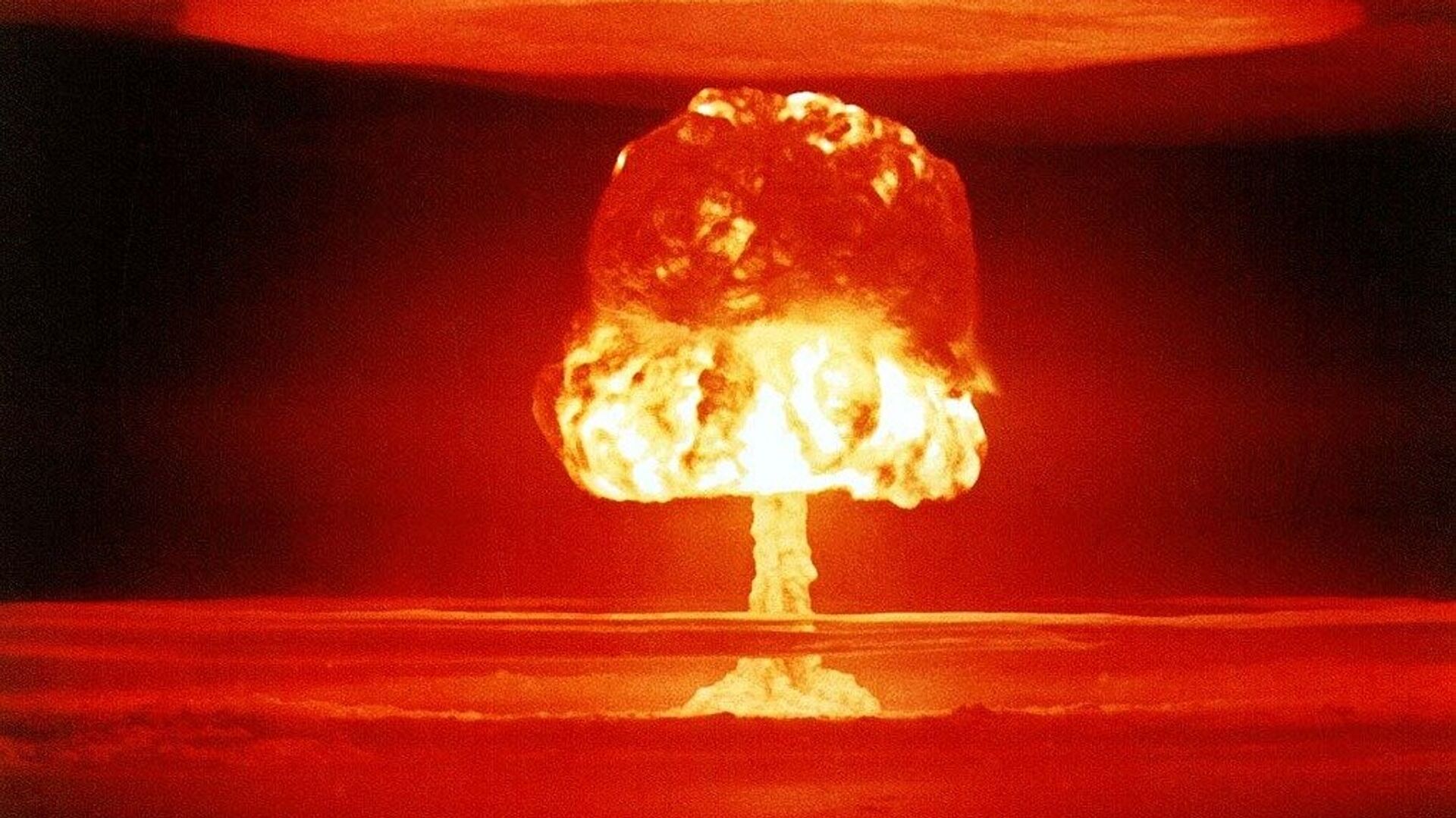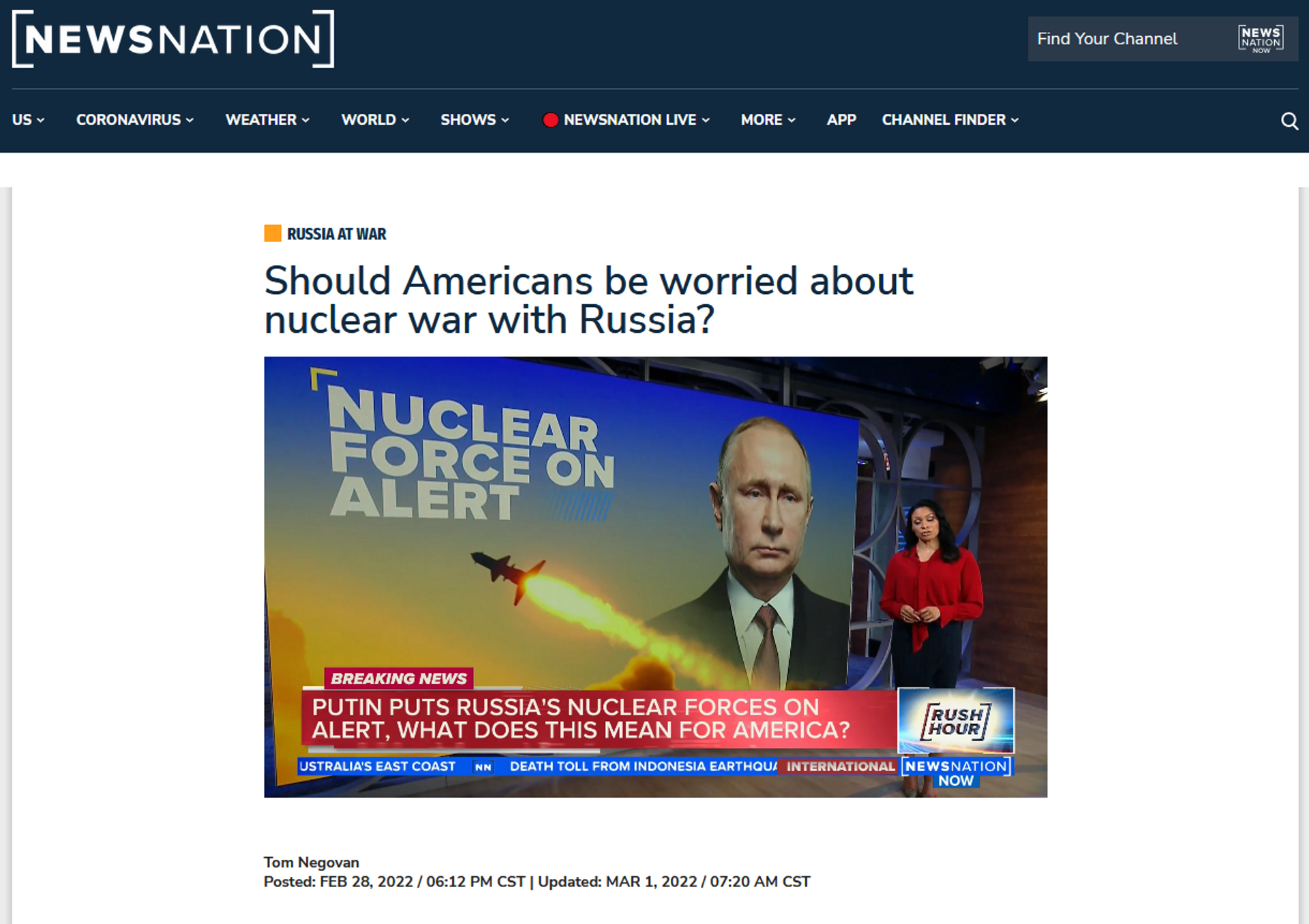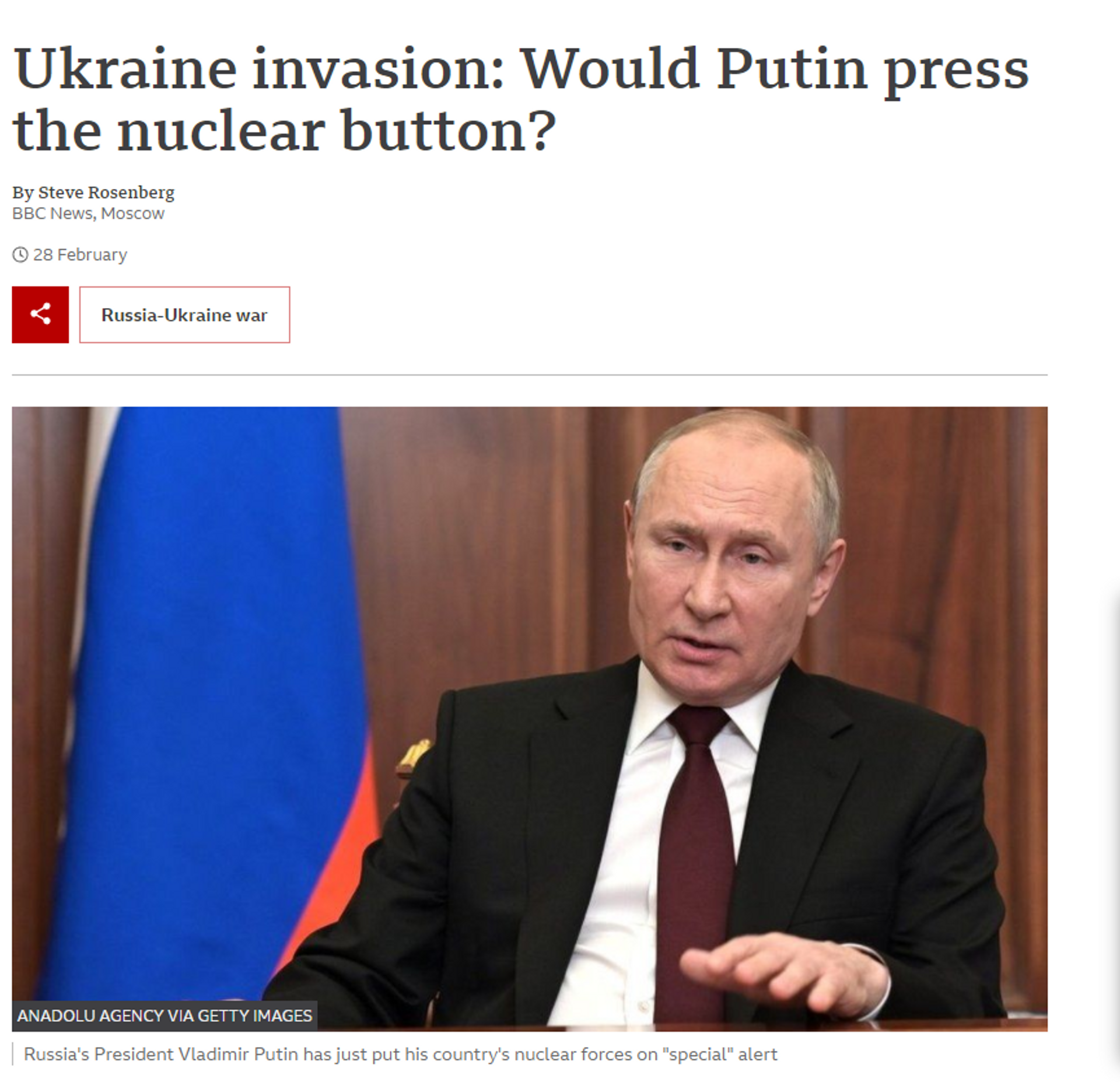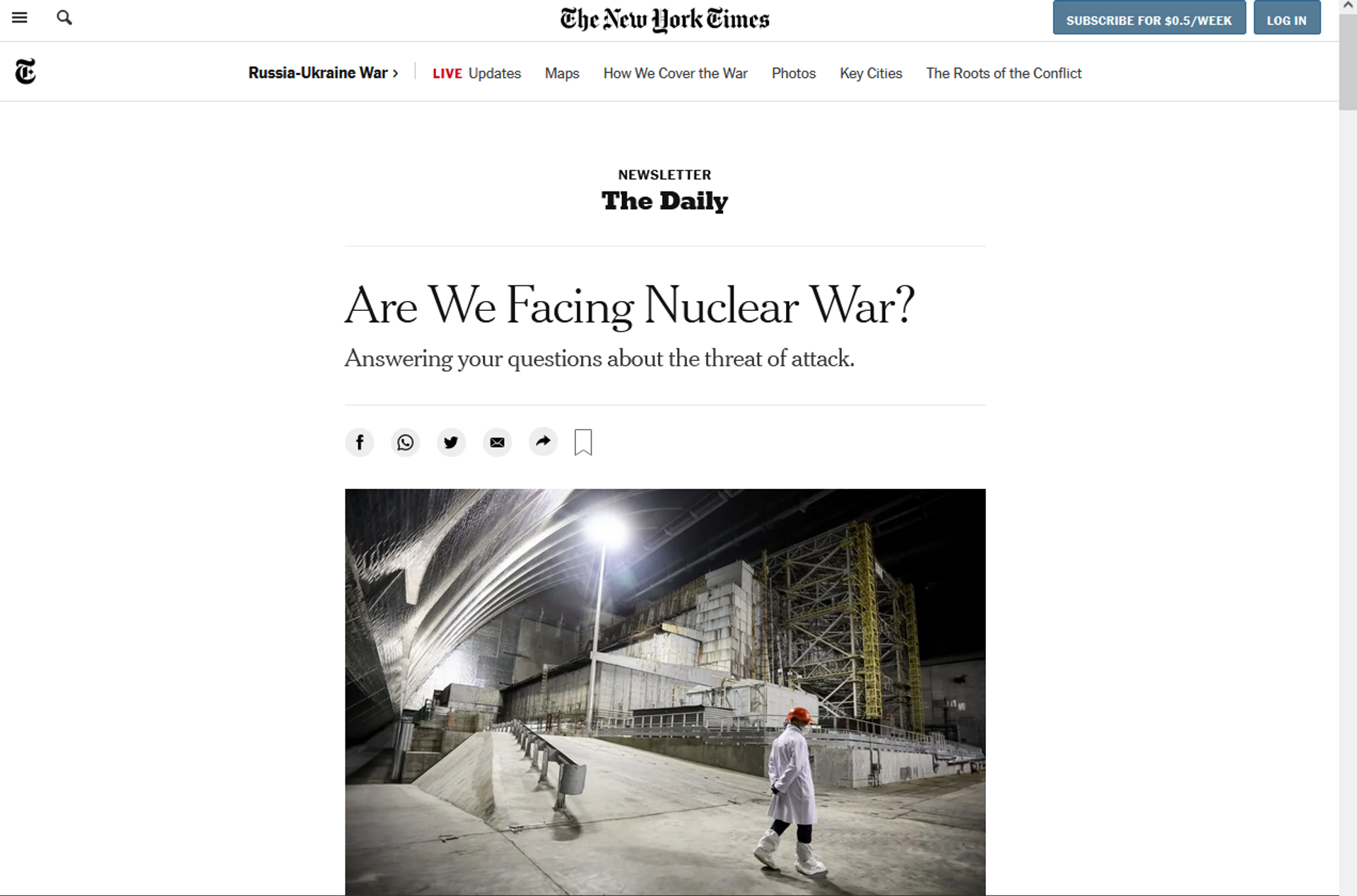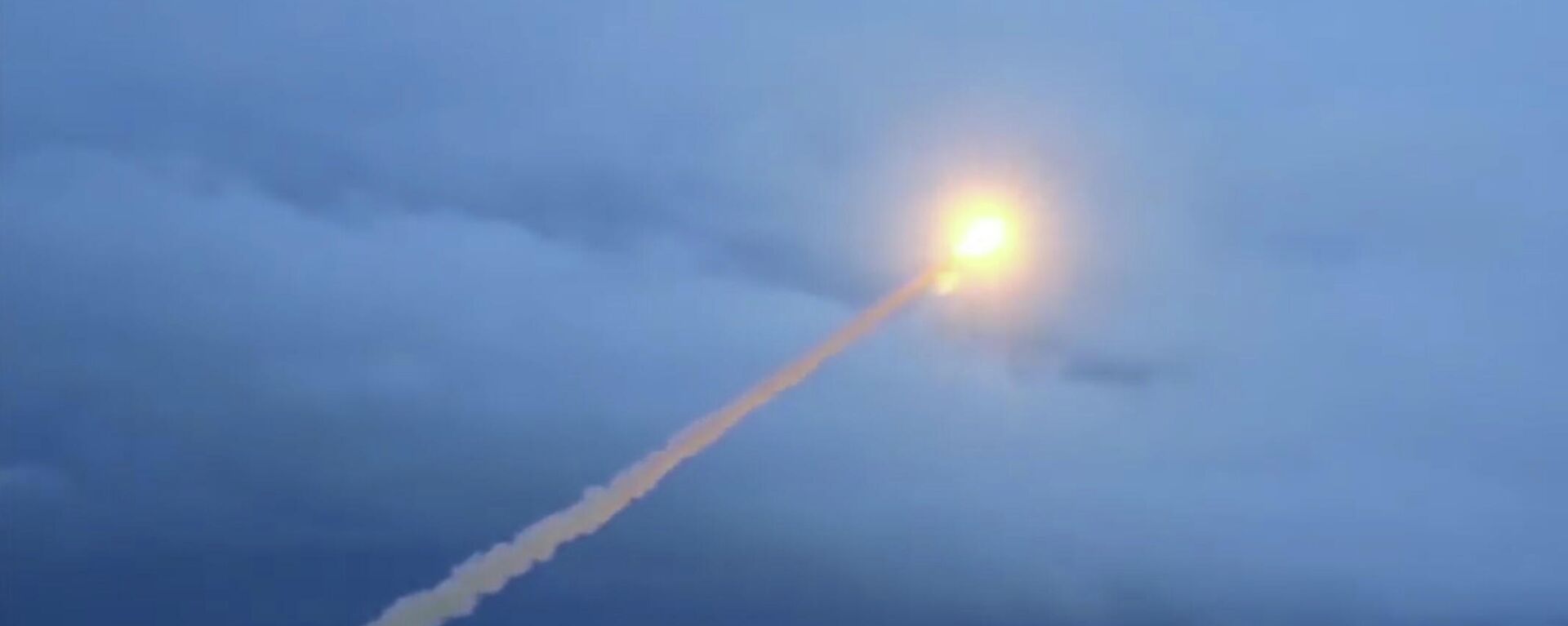https://sputnikglobe.com/20220315/anti-radiation-pills-sell-out-in-us-amid-panic-buying-triggered-by-nuclear-war-media-hysteria--1093881389.html
Anti-Radiation Pills Sell Out in US Amid Panic Buying Triggered by 'Nuclear War' Media Hysteria
Anti-Radiation Pills Sell Out in US Amid Panic Buying Triggered by 'Nuclear War' Media Hysteria
Sputnik International
Amid Moscow’s ongoing special operation to demilitarise and "de-Nazify" Ukraine, NATO countries have rejected repeated calls from Kiev to impose a no-fly zone... 15.03.2022, Sputnik International
2022-03-15T05:41+0000
2022-03-15T05:41+0000
2022-03-15T05:59+0000
russia's special operation in ukraine
us
ebay
nuclear war
us centers for disease control and prevention
russia
ukraine
chernobyl
volodymyr zelensky
international atomic energy agency (iaea)
https://cdn1.img.sputnikglobe.com/img/106306/79/1063067909_0:354:1019:927_1920x0_80_0_0_6619ab410f5eacf4cf8521786de17836.jpg
Americans have been panic-buying potassium iodide tablets, which can counteract the effects of radiation poisoning, with manufacturers in the US confirming depleted inventories over spiralling fears of a possible nuclear war, CNN reported.Russia’s special operation to demilitarise and "de-Nazify" Ukraine, presented by the Western press as an “invasion”, despite the Kremlin repeatedly assuring that its goal is to only target military infrastructure, with no plans to occupy the neighbouring country, has fuelled a 'nuclear war' media hysteria. With Western media outlets pushing headlines questioning whether Americans ought to be worried about nuclear war with Russia, manufacturer IOSAT is currently sold out of its 14-pack boxes of IOSAT tablets, made by Anbex, ordinarily selling for $13.99 on its website. The surging demand has driven prices up, with identical tablets now for sale for $149 on eBay.On Monday, four boxes of Thyrosafe potassium iodide tablets were selling for $132.50. Another listing showed a box of IOSAT 130 mg pills costing $89.95 each.The website of New York-based company Anbex, Inc., a leading supplier, currently states that they are “out of stock of IOSAT potassium iodide 130mg and 65mg tablets."He added that orders began piling up in mid February, with buyers ranging from individuals and resellers to hospitals, municipalities and governments."The big run started on February 23 through February 28. We sold out of all the inventory we had," added Jones, indicating that at the time reports had come in of Russian units taking control of Ukraine's Chernobyl nuclear power plant.Russia has since offered exhaustive clarifications regarding the situation with Chernobyl.According to Russian Deputy Defence Minister Nikolai Pankov, Ukrainian nationalists had committed a dangerous provocation, attacking the power grid facilities that provide electricity to the Chernobyl NPP, but Russian experts took prompt measures to switch to backup diesel generator power sources.Subsequently, Russian Foreign Ministry spokeswoman Maria Zakharova said that statements coming from Kiev claiming that there was a safety threat from radiation posed by the Chernobyl NPP after it was taken under the control of Russian forces were simply not true.Furthermore, Russia has informed the International Atomic Energy Agency (IAEA) that the management and operation of Chernobyl, as well as the Zaporozhskaya NPP, is being carried out by Ukrainian personnel, but a group of Russian experts is also providing assistance.Ukraine’s President Volodymyr Zelensky also raised the topic of nuclear weapons, when he suggested withdrawal from the Budapest memorandum by which Kiev was compelled to remove the nuclear weapons left behind when the USSR collapsed. According to his claims, signatories of the memorandum had failed to uphold security guarantees given to Ukraine in exchange for it to enact voluntary nuclear disarmament.Kiev has also been urging NATO countries to introduce a no-fly zone in Ukraine's airspace to hamper the mission of Russian aviation as part of the special operation in the country. However, the alliance members argued that the no-fly zone could trigger a Third World War with Russia. The Kremlin has also cautioned NATO that implementing a no-fly zone could result in the bloc being considered a party to the conflict.‘Not a Cure-All’In the event of a nuclear explosion, radioactive iodine released into the atmosphere can be breathed into the lungs as well as contaminate water, soil, plants and animals, according to the US Centers for Disease Control and Prevention (CDC).According to the CDC, radioactive iodide can harm the thyroid, an endocrine gland in the front of the neck that produces many hormones regulating the body.In the case of radiation exposure, the thyroid gland can absorb too much radioactive iodide, which can result in thyroid cancer. Potassium iodide, whether in liquid or pill form, can saturate the thyroid gland, thus preventing it from absorbing radioactive iodine.However, with the panic buying, CDC is warning Americans that taking too many of the anti-radiation pills, which are not a cure-all, can cause severe illness or death.A single dose protects the thyroid gland for no more than 24 hours, warns the CDC, adding that the pills work best for certain age groups.Potassium iodide is officially recognised in the US as a treatment in the wake of a nuclear attack or radiation spill. According to vice president of sales and marketing for Anbex, Troy Jones, demand for the pills had similarly soared when former President Donald Trump tweeted in 2018 that he had a "much bigger & more powerful" button than North Korea's leader Kim Jong-un.Another occasion was on 13 January 2018, when the Hawaii Emergency Management Agency sent out a false ballistic missile alert over television, radio, and cellphones in the US state of Hawaii, saying: "This is not a drill". State officials later blamed a miscommunication during a drill for the first message.Let's stay in touch no matter what! Follow our Telegram channels to get all the latest news:Sputnik News US - https://t.me/sputniknewsusSputnik News India - https://t.me/sputniknewsindia
https://sputnikglobe.com/20220313/efforts-to-repair-damaged-power-lines-at-chernobyl-nuclear-power-plant-continue---iaea-1093819337.html
https://sputnikglobe.com/20220310/russian-foreign-ministry-nuclear-war-is-impossible-it-would-be-the-end-of-civilisation-1093751246.html
https://sputnikglobe.com/20200125/hawaii-governor-false-missile-alarm-twitter-1078137971.html
ukraine
chernobyl
Sputnik International
feedback@sputniknews.com
+74956456601
MIA „Rossiya Segodnya“
2022
News
en_EN
Sputnik International
feedback@sputniknews.com
+74956456601
MIA „Rossiya Segodnya“
Sputnik International
feedback@sputniknews.com
+74956456601
MIA „Rossiya Segodnya“
us, ebay, nuclear war, us centers for disease control and prevention, ukraine, chernobyl, volodymyr zelensky, international atomic energy agency (iaea)
us, ebay, nuclear war, us centers for disease control and prevention, ukraine, chernobyl, volodymyr zelensky, international atomic energy agency (iaea)
Anti-Radiation Pills Sell Out in US Amid Panic Buying Triggered by 'Nuclear War' Media Hysteria
05:41 GMT 15.03.2022 (Updated: 05:59 GMT 15.03.2022) Amid Moscow’s ongoing special operation to demilitarise and "de-Nazify" Ukraine, NATO countries have rejected repeated calls from Kiev to impose a no-fly zone to stop Russian warplanes from carrying out missions, arguing that it could trigger a Third World War, which may end up being a nuclear one.
Americans have been panic-buying potassium iodide tablets, which can counteract the effects of radiation poisoning, with manufacturers in the US confirming depleted inventories over spiralling fears of a possible
nuclear war, CNN reported.
Russia’s special operation to demilitarise and "de-Nazify" Ukraine, presented by the Western press as an “invasion”, despite the Kremlin repeatedly assuring that its goal is to only target military infrastructure, with no plans to occupy the neighbouring country, has fuelled a 'nuclear war' media hysteria.
With Western media outlets pushing headlines questioning whether Americans ought to be worried about nuclear war with Russia, manufacturer IOSAT is currently sold out of its 14-pack boxes of IOSAT tablets, made by Anbex, ordinarily selling for $13.99 on its website. The surging demand has driven prices up, with identical tablets now for sale for $149 on eBay.
On Monday, four boxes of Thyrosafe potassium iodide tablets were selling for $132.50. Another listing showed a box of IOSAT 130 mg pills costing $89.95 each.
The website of New York-based company Anbex, Inc., a leading supplier, currently states that they are “out of stock of IOSAT potassium iodide 130mg and 65mg tablets."
"We hope to be back in stock in early April but we're pushing for late March," Troy Jones, vice president of sales and marketing for Anbex was quoted as saying.
He added that orders began piling up in mid February, with buyers ranging from individuals and resellers to hospitals, municipalities and governments.
"The big run started on February 23 through February 28. We sold out of all the inventory we had," added Jones, indicating that at the time reports had come in of Russian units taking control of Ukraine's Chernobyl nuclear power plant.
Russia has since offered exhaustive clarifications regarding the situation with Chernobyl.
According to Russian Deputy Defence Minister Nikolai Pankov, Ukrainian nationalists had committed a dangerous provocation, attacking the power grid facilities that provide electricity to the Chernobyl NPP, but Russian experts took prompt measures to switch to backup diesel generator power sources.
Subsequently, Russian Foreign Ministry spokeswoman Maria Zakharova said that statements coming from Kiev claiming that there was a safety threat from radiation posed by the Chernobyl NPP after it was taken under the control of Russian forces were simply not true.
Furthermore, Russia has informed the International Atomic Energy Agency (IAEA) that the management and operation of Chernobyl, as well as the
Zaporozhskaya NPP, is being carried out by Ukrainian personnel, but a group of Russian experts is also providing assistance.
"... While implementing measures carried out at ensuring the safe and secure operation of Ukrainian NPPs the Russia side maintains close contact with the IAEA," the Russian side was quoted as saying by the IAEA.
Ukraine’s President Volodymyr Zelensky also raised the topic of nuclear weapons, when he suggested withdrawal from the Budapest memorandum by which Kiev was compelled to remove the nuclear weapons left behind when the USSR collapsed. According to his claims, signatories of the memorandum had failed to uphold security guarantees given to Ukraine in exchange for it to enact voluntary nuclear disarmament.
Kiev has also been urging NATO countries to introduce a no-fly zone in Ukraine's airspace to hamper the mission of Russian aviation as part of the special operation in the country. However, the alliance members argued that the no-fly zone could trigger a Third World War with Russia. The Kremlin has also cautioned NATO that implementing a no-fly zone could result in the bloc being considered a party to the conflict.
In the event of a nuclear explosion, radioactive iodine released into the atmosphere can be breathed into the lungs as well as contaminate water, soil, plants and animals, according to the US Centers for Disease Control and Prevention (CDC).
According to the CDC, radioactive iodide can harm the thyroid, an endocrine gland in the front of the neck that produces many hormones regulating the body.
In the case of radiation exposure, the thyroid gland can absorb too much radioactive iodide, which can result in thyroid cancer. Potassium iodide, whether in liquid or pill form, can saturate the thyroid gland, thus preventing it from absorbing radioactive iodine.
However, with the panic buying, CDC is warning Americans that taking too many of the anti-radiation pills, which are not a cure-all, can cause severe illness or death.
A single dose protects the thyroid gland for no more than 24 hours, warns the CDC, adding that the pills work best for certain age groups.
Potassium iodide is officially recognised in the US as a treatment in the wake of a nuclear attack or radiation spill. According to vice president of sales and marketing for Anbex, Troy Jones, demand for the pills had similarly soared when former President Donald Trump tweeted in 2018 that he had a "much bigger & more powerful" button than North Korea's leader Kim Jong-un.
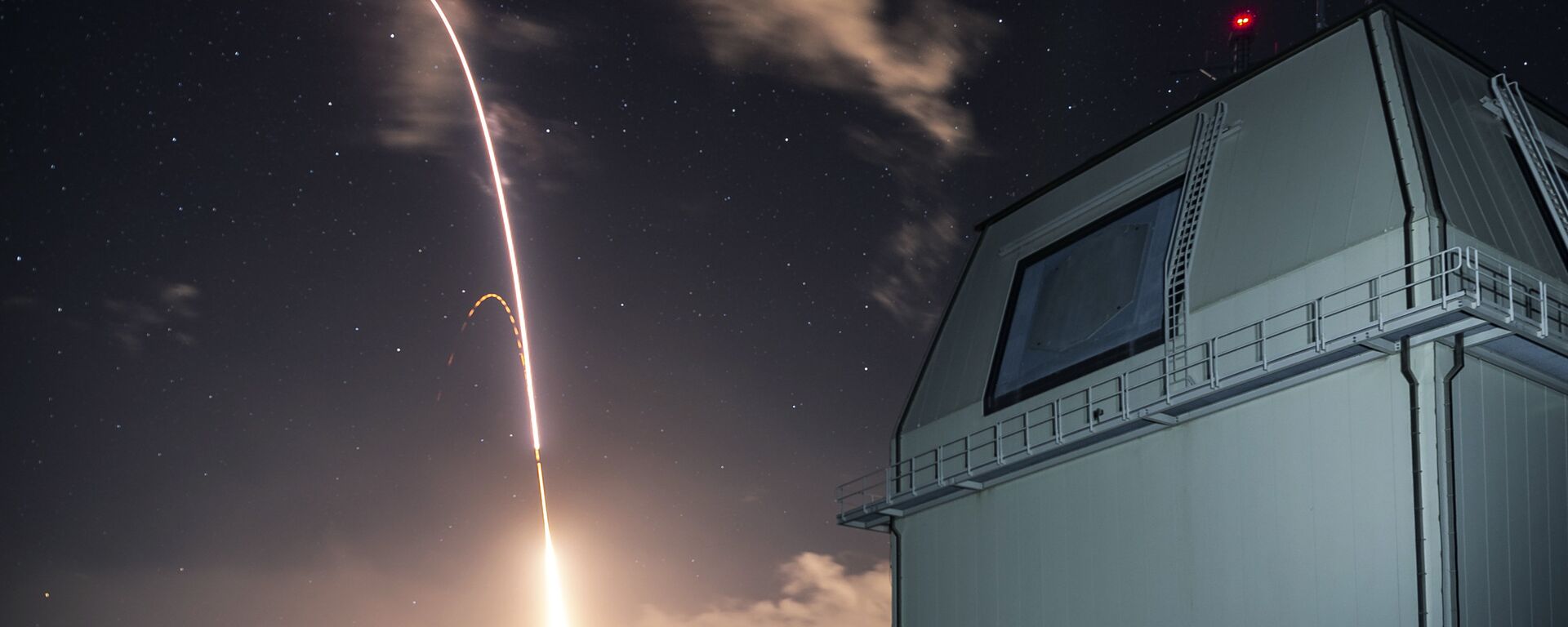
25 January 2020, 21:50 GMT
Another occasion was on 13 January 2018, when the Hawaii Emergency Management Agency sent out a
false ballistic missile alert over television, radio, and cellphones in the US state of Hawaii, saying: "This is not a drill". State officials later blamed a miscommunication during a drill for the first message.
Let's stay in touch no matter what! Follow our Telegram channels to get all the latest news:
